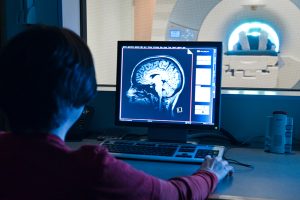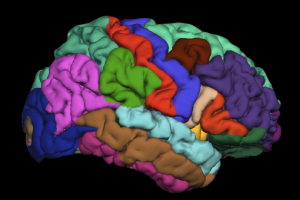一、项目背景
精准医学被大家广泛熟知,源于2015年1月20日,美国总统奥巴马在国情咨文中提出的“精准医学计划”。根据精准医学计划的定义,精准医学是“一种基于个体化基因、环境、生活方式等因素,以提供疾病治疗方案和预防策略的新兴方法”,所以精准医学又被称为个体化医疗(personalized medicine)。
与传统的较少考虑个体之间差异,而针对疾病人群进行“one fit all”一刀切的治疗和预防策略相比,精准医学将使医生和研究人员更准确地预测针对特定疾病的哪种治疗和预防策略将在哪些人群中起作用。从而更加准确的为每一个患病的个体量身定做适合且有效的治疗和预防策略。
二、项目说明
面向对象:欲以申请美国常青藤名校公共卫生、生物医学、预防医学等相关专业的本科生、研究生,以及勇于挑战的高中生。
软性背景:有一定公共卫生或者科研履历者优先;
科研导师:剑桥大学教授 Professor Professor Toribio Ana

Professor Toribio Ana 最初主修药学。在该行业工作了几年之后,她开始了自己的研究生涯。她首先攻读生物技术(应用微生物学)硕士学位。她的部分研究工作是在巴黎巴斯德研究所完成的。之后,Ana 在英国剑桥市的维康基金会桑格研究所(Wellcome Trust Sanger Institute)攻读博化学博士学位,导师是戈登·杜根(Gordon Dougan)和乔治·萨尔蒙德(George Salmond)。在同一研究所干细胞蛋白质组学博士后职位后,她加入了欧洲生物信息学研究所,也在惠康信托基金基因组校区。
科研形式:线上远程,导师授课+练习实战结合,完成课题学习、选题、研究实战及报告撰写;
phase 1:课题基础知识学习,课程+文献阅读
phase 2:确定研究课题,讨论研究思路以及研究进展
phase 3:汇报答辩+报告撰写
科研周期:10周线上远程科研
科研课题:基因组医学与精准医疗
三、项目/研究介绍Research
精准医学基于基因组测序技术的快速进步以及生物信息与大数据科学的交叉应用。随着医学成像技术,再生医学,等其他技术的进步和数据的快速累积,尤其是以基于DNA,RNA与药物作用关系的药物基因组学为核心的研究领域的发展,将会为精准医学发展提供强有力的支持。如果你正在研究或感兴趣的任何方面的医学、兽医学、或任何自然科学领域相关的人类或动物生物学和/或健康, 此项目将专注于基因组医学,将生命科学与临床医学整合在一起,使基因组的研究成果迅速高效地转化并应用于临床医学实际。它是后基因组时代最重要的研究方向,目的在预测(Predictive)、预防(Preventive)和实现个体化(Personalized)治疗,以防控疾病。
四、课题大纲Outline
Part 1. What is Precision Medicine or Genomic Medicine? The key scientific developments that allowed this field to emerge, flourish and promise a new era in healthcare.Learning objectives: The content of Part 1 of Day 1 will be an introduction to Precision Medicine. It will allow the students to become familiar with the basic concepts, history and principles of the key scientific developments that are the basis of this field of study.
Part 2. Genes and genomes. Genome browsers.
Learning objectives: To familiarize the students with the biology involved in Genomic Medicine and the use of genome browsers.
Principles of Sequencing and First-Generation Sequencing (Sanger sequencing). Overview of Next Generation sequencing (NGS).Learning objectives: To give the students an in-depth understanding of sequencing and sequencing technologies.
The principles of the NGS platforms currently available: Second-Generation sequencing platforms (454, Illumina, Ion Torrent, SOLiD).Learning objectives: To familiarize the students with the principles of the Next Generation sequencing (NGS) sequencing platforms currently available and used in Genomic Medicine.
Examples of uses in Genomic Medicine.
Essay instructions
Part 1. The principles of the Next Generation sequencing (NGS) platforms currently available: Third-Generation sequencing platforms (PacBio, Oxford Nanopore (MinION)).Learning objectives: To familiarize the students with the principles of state of the art sequencing technologies involved in Genomic Medicine. Examples of uses in Genomic Medicine.
Part 2. Essay Instructions (30 minutes).
Applications of Precision Medicine:Part 1. Applications of Precision Medicine in oncology, endocrinology, cardiovascular diseases, metabolic diseases.
Learning objectives: To familiarize the students with examples of current applications of genomic medicine in some of the classical clinical areas.
Part 2. Applications of Precision Medicine in Non-Invasive Prenatal Testing (NIPT) and Rare Diseases.
Learning objectives: To familiarize the students with examples of current applications of genomic medicine. Examples of these two fields where genomic medicine has made a major contribution.
Principles of infectious disease diagnosis based on rapid and genomic methods. Advantages of these rapid methods.Learning objectives: To familiarize the students with the principles of applying genomic methods in the diagnosis of infectious diseases. They will learn about the importance of validated methods in clinical diagnosis.
The importance and use of online databases in Precision Medicine. Role of the patients’ participation in many initiatives (example: rare diseases). Confidentiality.Learning objectives: To familiarize the students with the main public online databases that characterize genes known to be involved in different diseases. The students will also be introduced to basic concepts of confidentiality in the management of clinical data in the databases.
Part 1. The future of Precision Medicine. Precision Medicine and Global Health.Learning objectives: The students will be taught how Precision Medicine is likely to evolve in the coming years, and the importance of Genomic Medicine in Global Health.
Part 2. Presentations.
Learning objective: The students will have the opportunity to make individual oral presentations (approximately 10 minutes each) about a topic of the course in order to assimilate and deepen their learning.
Paper Writing and discussion
五、项目收获
- 深入学习该领域知识和研究方法,积累科研经历和经验
- 完成学术科研报告或者科研论文
- 优秀学员将获得导师推荐信,助力世界名校申请
- 学术成果有机会在专业国际学术期刊或EI/CPCI国际会议收录发表







